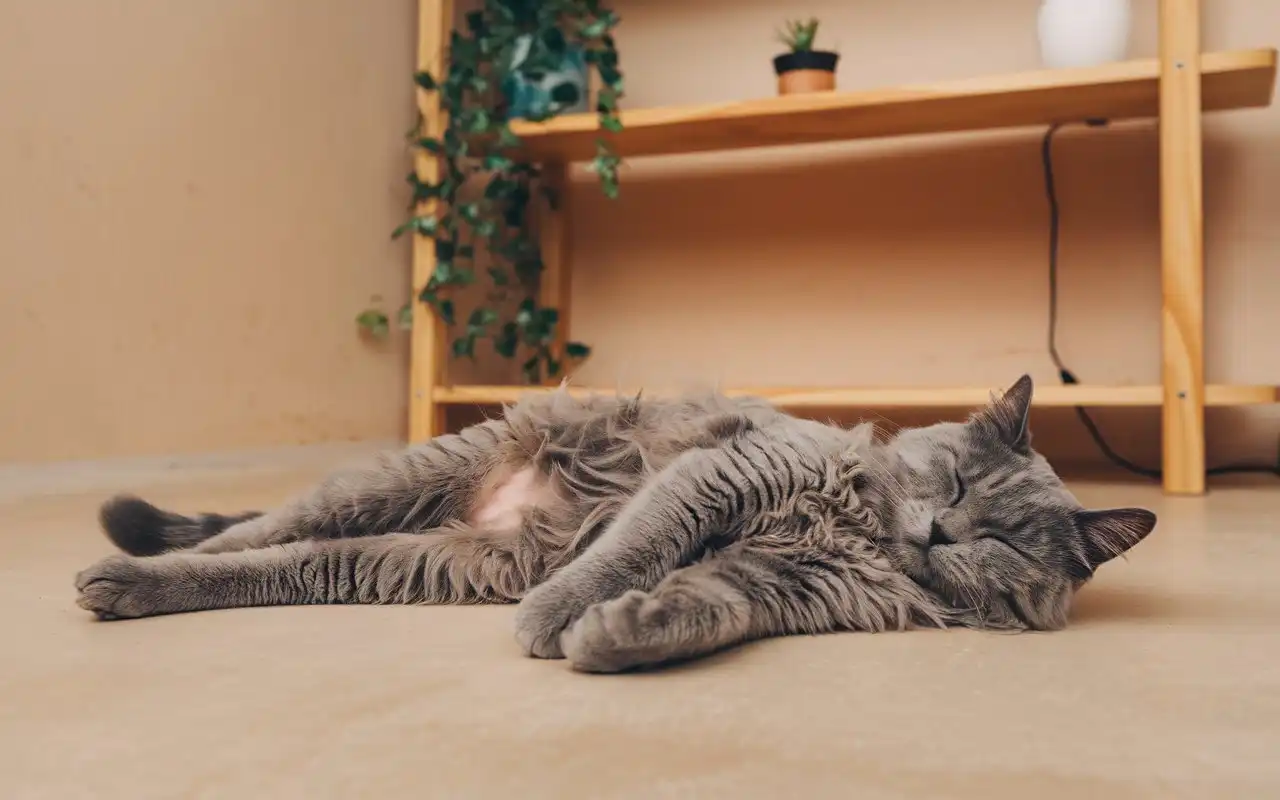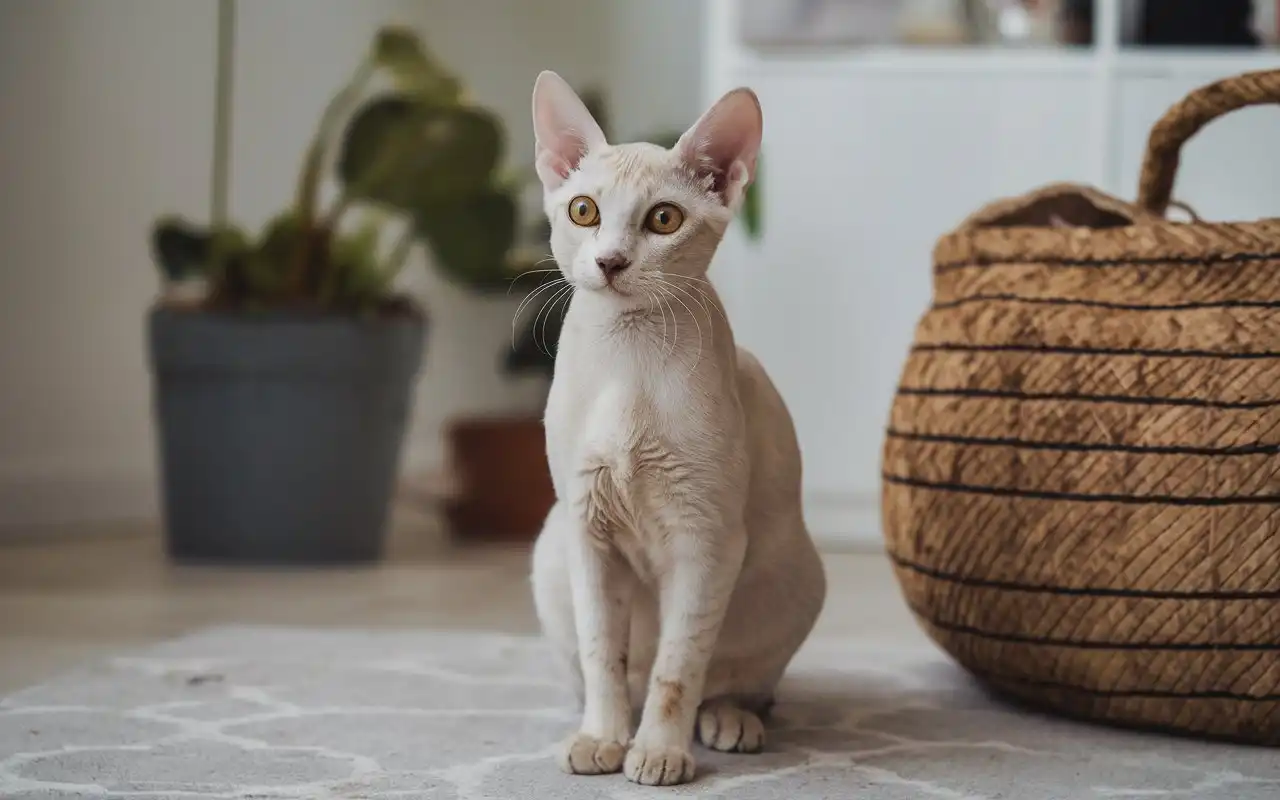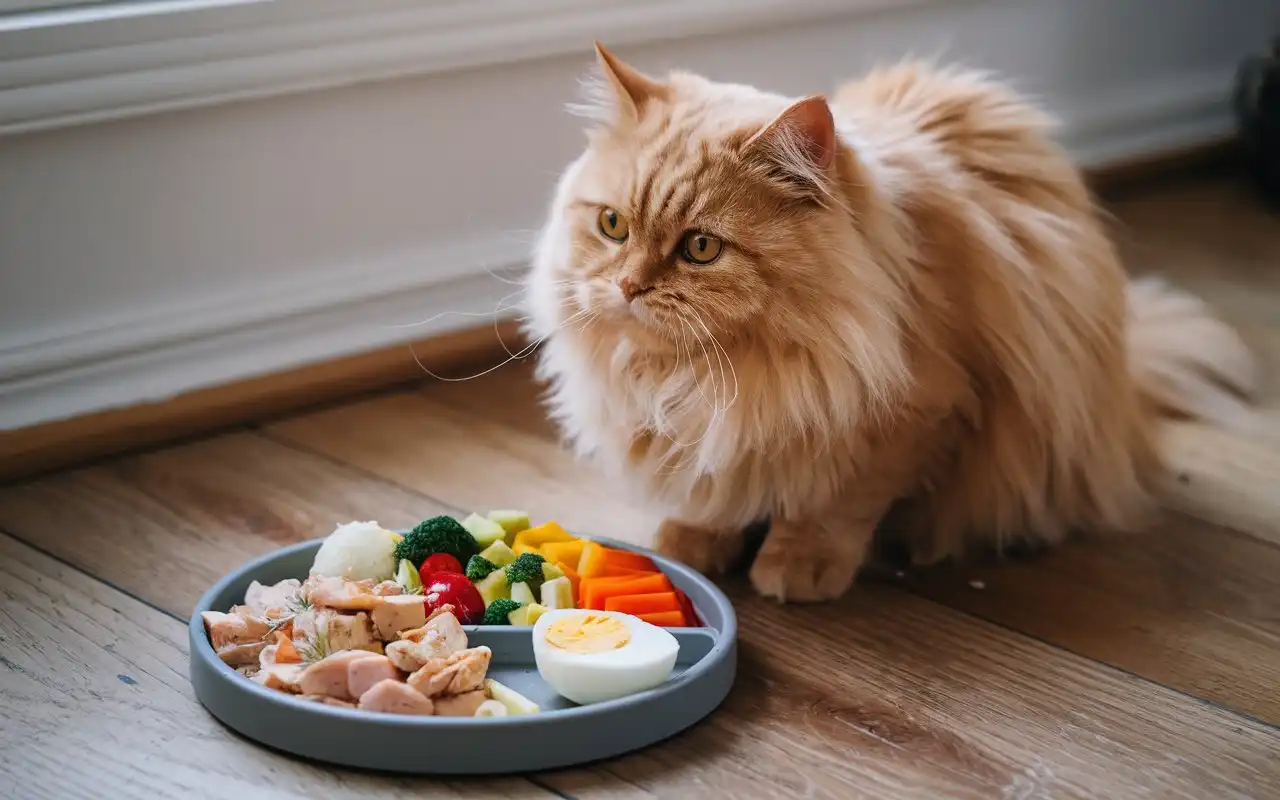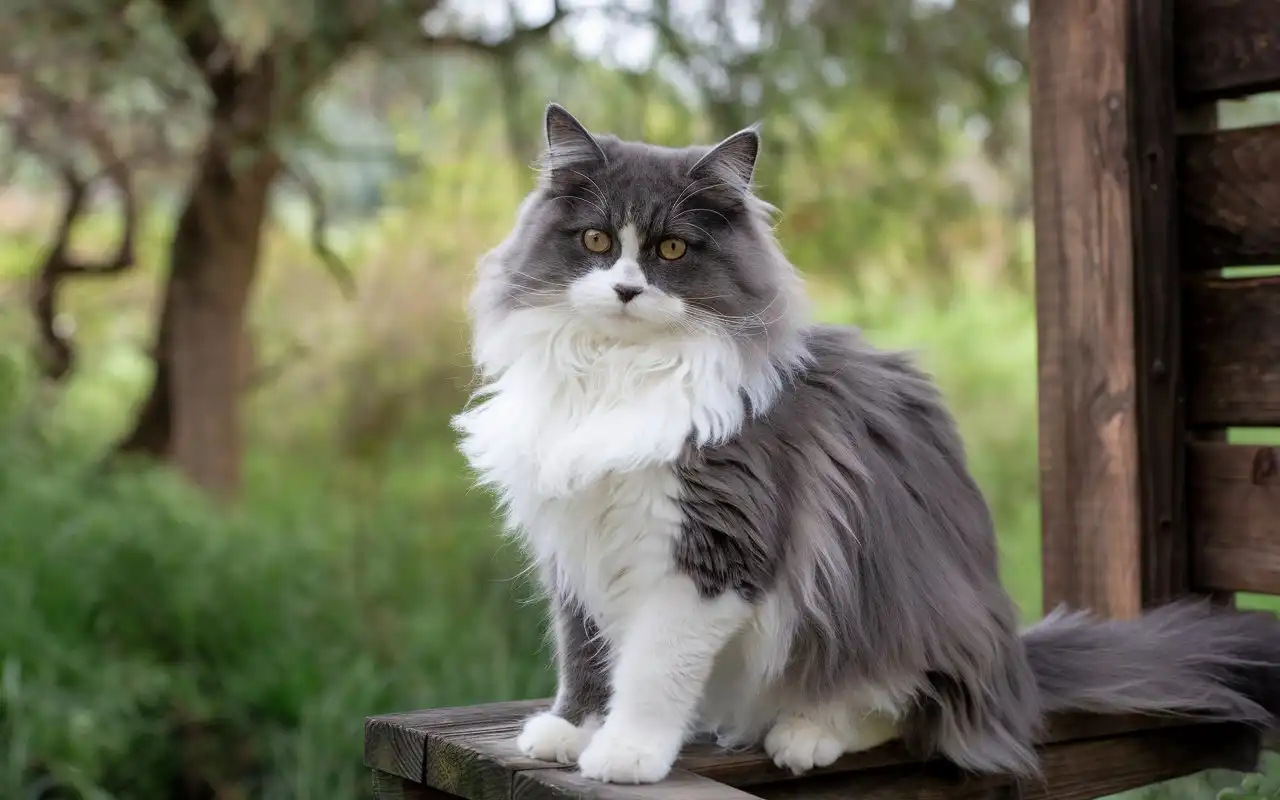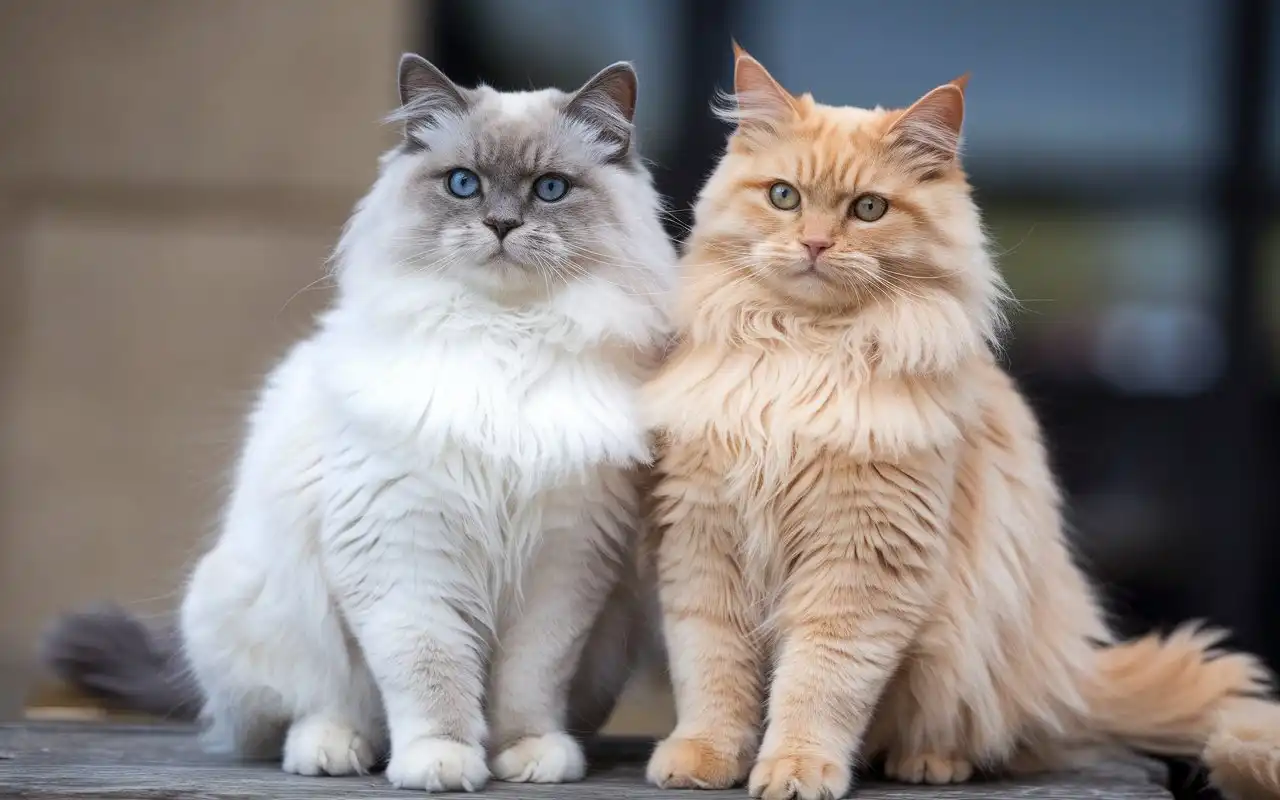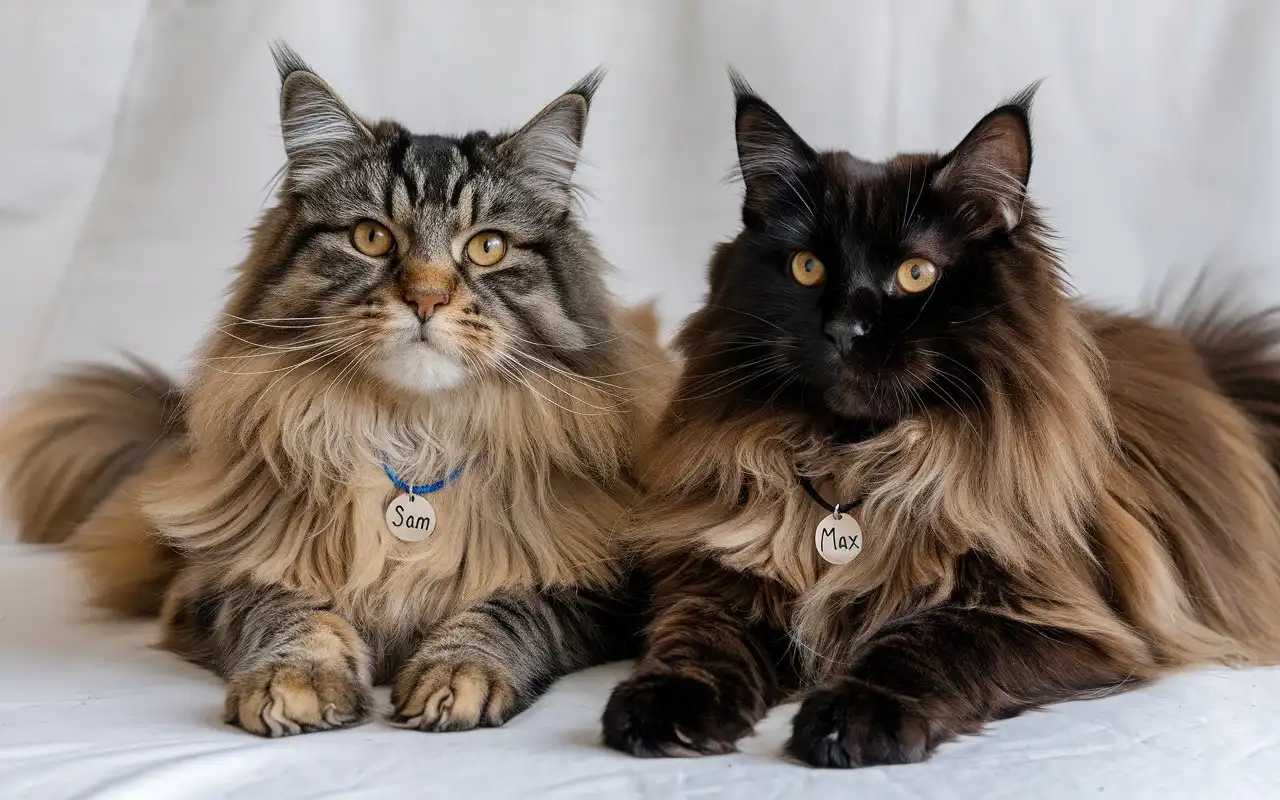Colitis in cats can greatly affect their health and well-being. Cat owners must know the symptoms, causes, and treatments of digestive issues. This is especially true for those with cats prone to such problems. This article will cover all you need to know about colitis in cats. We will also show you how to help your cat live a healthy, comfortable life.
Table of Contents
What Is Colitis in Cats?
Colitis in cats is colon (large intestine) inflammation. It causes digestive issues and discomfort. This condition can cause acute colitis, which is sudden and short-lived. It can also cause chronic colitis, which is long-lasting and needs ongoing care. Symptoms may include diarrhea, which can be bloody or mucoid. Other signs are straining to poop, frequent bowel movements, and stomach pain. Colitis can have various causes. They include diet changes, infections, parasites, or health issues. A veterinarian must correctly diagnose and treat this condition for effective management.
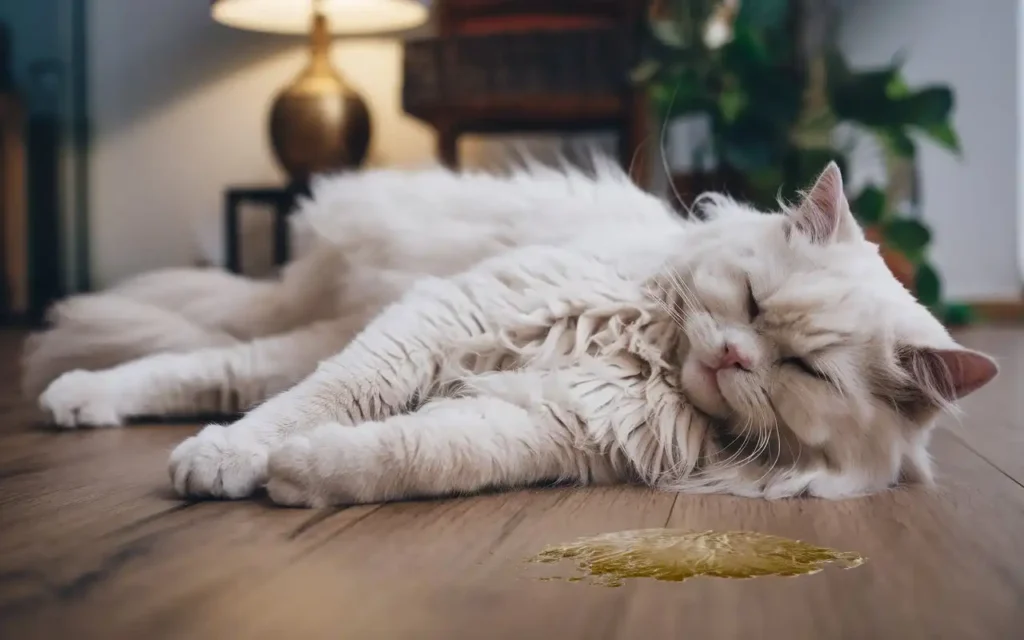
Common Symptoms of Colitis in Cats
Colitis in cats can cause various symptoms. It mainly affects the gastrointestinal tract. Knowing these signs can help detect and treat problems early. Here’s a detailed look at the common symptoms of colitis in cats:
1. Diarrhea
Nature: The most prominent symptom of colitis is diarrhea. This can be frequent and may vary in consistency from soft stools to watery feces.
Appearance: Diarrhea in cats with colitis may contain mucus or blood. This indicates inflammation or irritation in the colon. These substances may indicate a severe case needing veterinary care.
2. Vomiting
Cats with colitis may also experience vomiting. This can occur for various reasons. They include irritation of the digestive tract or a stress response.
3. Frequent Trips to the Litter Box
Affected cats often feel the urge to defecate more frequently. This can result in multiple trips to the litter box, even if little or no feces is produced during each visit.
4. Straining to Defecate
Cats may show signs of straining when trying to defecate. This can be uncomfortable. It might mean the colon is inflamed or blocked, making it hard to pass stool.
5. Weight Loss
Ongoing diarrhea and vomiting can lead to weight loss in cats. It often results from malabsorption, dehydration, and a loss of appetite from discomfort.
6. Behavioral Changes
Cats with colitis may show changes in behavior. They may be more tired or irritable. They may become less active. They may avoid socializing and dislike being touched, especially on their stomach.
7. Loss of Appetite
A cat with colitis may show a decreased interest in food or stop eating altogether. This can also help in reducing weight and tiredness.
8. Abdominal Pain or Discomfort
Affected cats may show signs of abdominal pain. These include tense muscles, sensitivity to touch, and unusual postures (e.g., hunching).
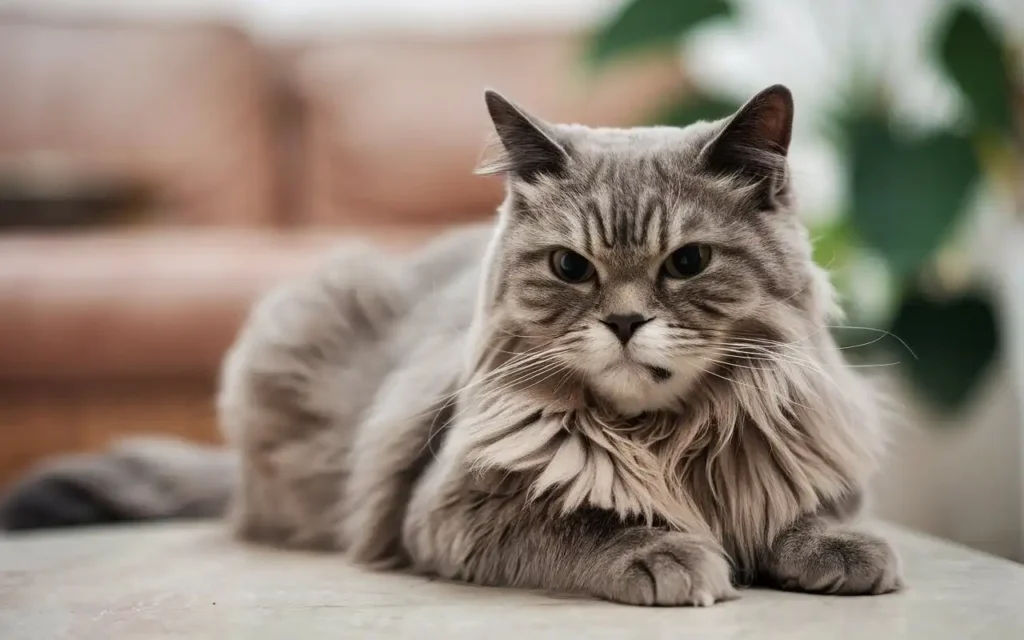
Causes of Colitis in Cats
Colitis in cats can have many causes. They include diet, infections, and chronic diseases. Understanding the root cause is key to treating the condition effectively.
- Dietary Causes: A sudden change in diet or food intolerances can cause colitis in cats. This is especially true for grains, proteins, or artificial additives.
- Infections: Bacterial, viral, and parasitic infections are common culprits. For instance, infections caused by Salmonella or Giardia can lead to inflammation in the colon.
- Stress: Stress can have a profound impact on a cat’s digestive system. Colitis can occur due to changes in the environment, new pets, or other disruptions to a cat’s routine.
- Chronic Diseases: Chronic colitis can result from IBD and autoimmune disorders.
- Allergies: Food allergies or sensitivities often cause colitis in cats. They can inflame the gut.
- Foreign Bodies: Swallowing non-food items, like toys or string, can irritate the colon. It can cause inflammation.
Types of Colitis in Cats
Colitis in cats can be classified into types. This depends on the cause and duration of the condition. Comprehending these variations can aid in personalizing treatment strategies.
1. Acute Colitis
Acute colitis is a sudden inflammation of the colon. It lasts less than a week. This condition can arise from various triggers. These include dietary changes, like new foods or sudden diet shifts, and eating inedible things. Stress from environmental changes can cause acute colitis. Infections, whether bacterial, viral, or parasitic, are common causes as well. Symptoms often include diarrhea, sometimes with blood or mucus. There may be vomiting and frequent trips to the litter box. Acute colitis can alarm pet owners. But it usually resolves with prompt veterinary care and treatment. This may include diet changes and medications.
2. Chronic Colitis
In contrast, chronic colitis is a longer-lasting condition that can persist for months or even years. It often links to food allergies, chronic stress, or health issues, like inflammatory bowel disease. Cats with chronic colitis may have diarrhea, weight loss, and pain. Managing chronic colitis often requires a comprehensive approach. This includes a special diet, regular vet check-ups, and meds to control inflammation.
3. Ulcerative Colitis
Ulcerative colitis is a severe, chronic condition. It causes open sores in the colon. Symptoms include bloody diarrhea and severe abdominal pain. It needs careful management and vet intervention to reduce inflammation and prevent complications.
4. Stress-Induced Colitis
Anxious cats are triggered by changes in their environment. This includes moving to a new home, meeting unfamiliar people, or introducing new pets. These stressors can upset a sensitive cat’s stomach. This may worsen colitis symptoms and cause gastrointestinal distress. Proper management of stress is crucial for these cats.
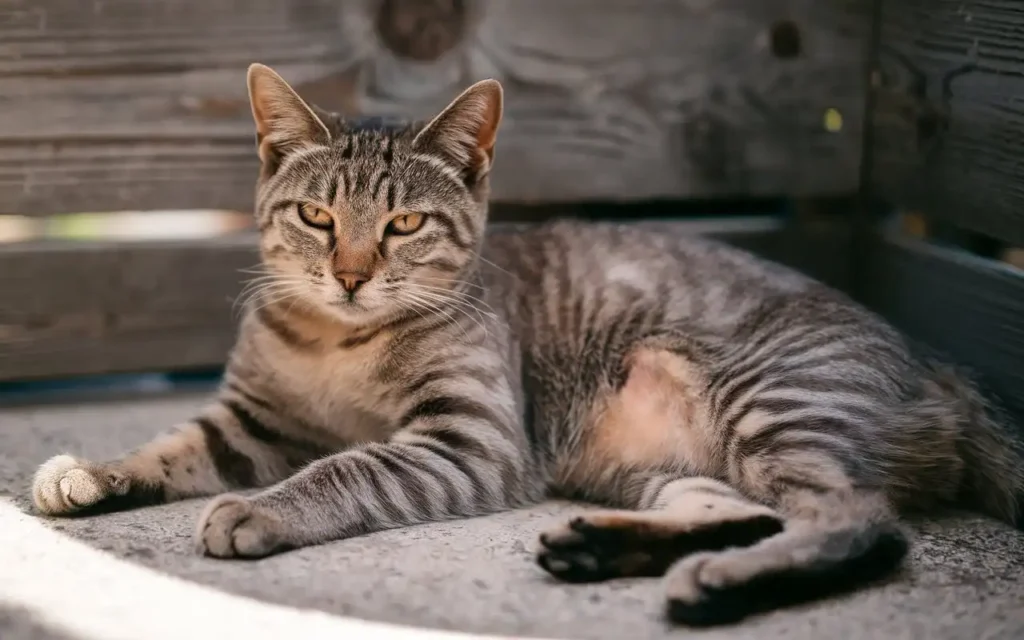
Diagnosis and Veterinary Testing
Diagnosing colitis in cats requires several steps. This ensures an accurate understanding of the condition and its cause. A vet may start with a physical exam and a full history. This includes any recent dietary changes or stressful events.
1. Fecal Analysis
A fecal analysis is a crucial first step. It helps find parasites, bacteria, or other pathogens that may cause colitis. A stool sample can help vets find infectious agents. They need to treat these with targeted drugs.
2. Blood Work
Blood tests are another essential diagnostic tool. They can show health issues, like kidney or liver problems. These may cause gastrointestinal symptoms. Blood work can check organ function. It can also find any issues affecting the cat’s digestive health.
3. Ultrasound or X-rays
Imaging studies, like ultrasounds or X-rays, let vets see the colon and nearby organs. These imaging tests rule out structural problems, like tumors or blockages. They could be causing or worsening colitis symptoms.
4. Colonoscopy
At times, a veterinarian could advise a colonoscopy This procedure allows for a direct exam of the colon. It also lets us collect tissue samples (biopsies) for testing. Biopsies can help with chronic issues, like inflammatory bowel disease. They can guide better treatments.
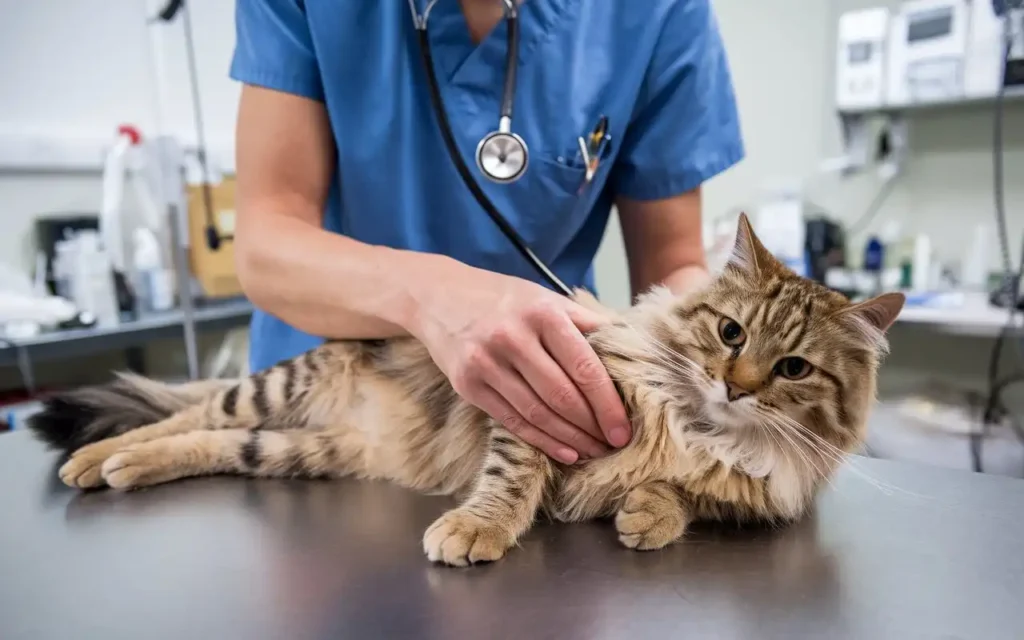
Treatment Options for Colitis in Cats
Treating colitis in cats often requires dietary changes, medication, and lifestyle shifts. The treatment depends on the cause of the colitis and the severity of the symptoms.
1. Dietary Changes
Implementing a hypoallergenic or easily digestible diet can significantly benefit cats with colitis. These diets help reduce irritation in the digestive tract, allowing for healing. Cats with food sensitivities may thrive on grain-free or novel protein diets. These diets can reduce allergies and improve digestion.
2. Medications
Veterinarians may prescribe various medications for colitis. These include anti-inflammatories for inflammation, antibiotics for infections, and antiparasitics for parasites.
3. Probiotics and Supplements
Incorporating probiotics can help restore the balance of gut flora disrupted by colitis. Also, omega-3 and fiber supplements can help with gut health and stool quality.
4. Hydration Support
Severe diarrhea can lead to dehydration, necessitating hydration support. Veterinarians may administer fluids to prevent complications and ensure the cat remains hydrated.
5. Stress Management
For cases of stress-related colitis, reducing stressors in the cat’s environment is essential. Calming products and enrichment activities can reduce anxiety. They can also prevent future episodes, promoting long-term well-being.
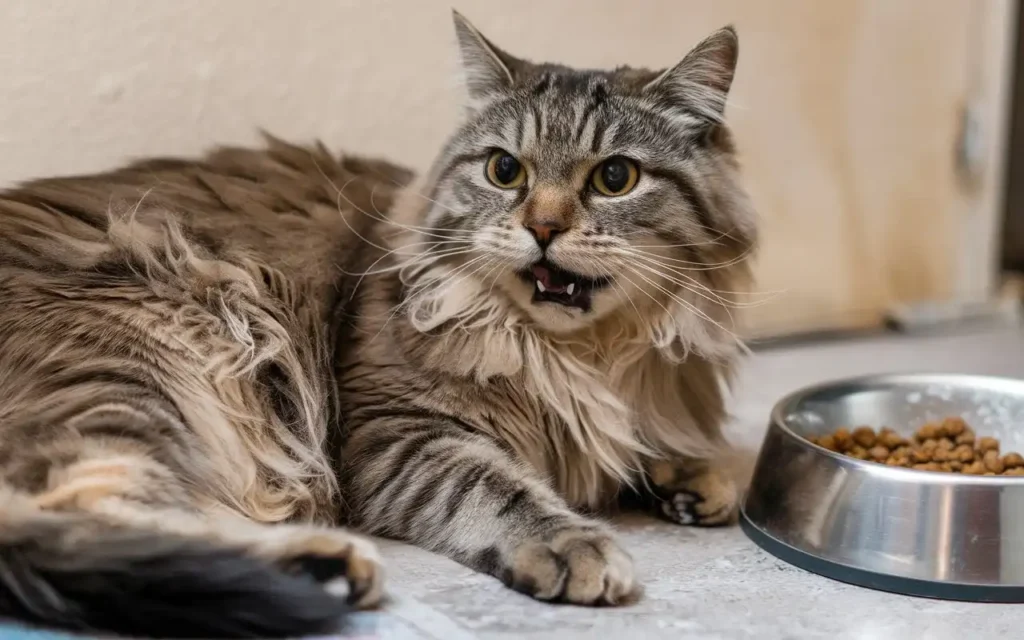
Home Care and Dietary Adjustments
Home care plays a vital role in managing colitis in cats, especially for chronic cases. A good diet, hydration, and a stress-free home can improve your cat’s life and reduce flare-ups.
1. Feeding Smaller, Frequent Meals
Instead of offering large meals, consider providing small, frequent meals throughout the day. This approach is easier on your cat’s digestive system. It reduces stress on the intestines and improves nutrient absorption. Smaller portions can help prevent overwhelming the stomach. This is especially good for cats with colitis.
2. Hydration
It’s crucial to give your cat constant access to fresh water, especially if they have diarrhea. Hydration helps prevent complications associated with fluid loss and supports digestive health. Cats may not drink enough water. So, consider water fountains or wet food to encourage them to drink more.
3. High-Quality, Digestible Foods
When choosing cat food, pick a high-quality, digestible brand. It should have no additives, fillers, or common allergens. A diet tailored to your cat’s needs can reduce irritation and improve health.
4. Fiber
Adding fiber to your cat’s diet can help with bowel movements. It may also reduce colitis symptoms. Some cat foods for digestive health have the right fiber levels. They support gastrointestinal function. So, they are a good choice for managing colitis. Always consult your vet before major diet changes. They must suit your cat’s condition.
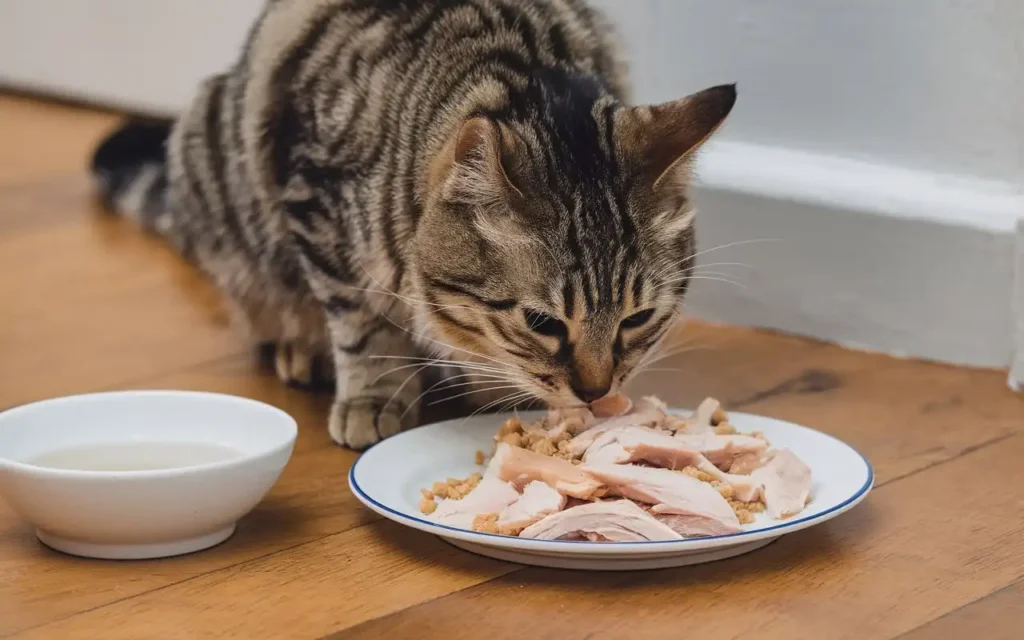
Prevention of Colitis in Cats
Preventing colitis in cats requires attention to diet, stress levels, and health. It’s not always possible to prevent colitis, especially from chronic diseases. However, you can take steps to reduce your cat’s risk.
1. Consistent Diet
A consistent diet is crucial for digestive health. Sudden changes in your cat’s food can cause stomach issues, like diarrhea and vomiting. If you need to switch foods, introduce new items gradually over several days. This will allow your cat’s digestive system to adjust. This slow transition helps minimize gastrointestinal upset and ensures your cat remains comfortable.
2. Stress Reduction
Stress reduction is vital, especially during big life changes, like moving or adopting pets. Providing a stable environment helps minimize anxiety, which can trigger gastrointestinal problems. Using calming products, like pheromone diffusers or anxiety wraps, can soothe your cat. This can reduce stress and prevent digestive issues.
3. Regular Veterinary Checkups
Scheduling regular veterinary checkups is vital for the early detection of health problems. These visits let vets check your cat’s health. They can spot any issues that might cause chronic colitis. Early intervention can significantly reduce the risk of complications
4. Parasite Prevention
Finally, update your cat’s parasite prevention. Parasites can cause colitis. Deworming and preventive treatments help your cat’s health. They reduce the risk of stomach issues. These strategies can help your cat. They can lower the risk of colitis.
Long-Term Care for Cats with Colitis
Long-term care for cats with chronic colitis is crucial for their health and quality of life. Frequent monitoring of symptoms allows for timely adjustments to their care plan. Dietary changes are often needed. They should focus on high-quality foods that are easy to digest. These should suit the cat’s specific sensitivities. It’s vital to follow your vet’s advice. This includes any medications and supplements. They will help manage inflammation and support gut health. Additionally, maintaining a consistent routine and minimizing stressors can help reduce flare-ups. Regular vet check-ups will catch any new issues. This will help manage colitis and improve your cat’s health.
When to Seek Veterinary Help
It’s crucial to seek veterinary help if your cat’s symptoms worsen or fail to improve after a few days of home care. Watch for severe diarrhea, persistent vomiting, or blood in the stool. These require immediate attention. These symptoms may signal a serious condition. They need prompt diagnosis and treatment. Also, if your cat is lethargic, dehydrated, or in pain, contact your vet. Early intervention is vital. It ensures your cat gets proper care. It also prevents complications from colitis or other gut issues.
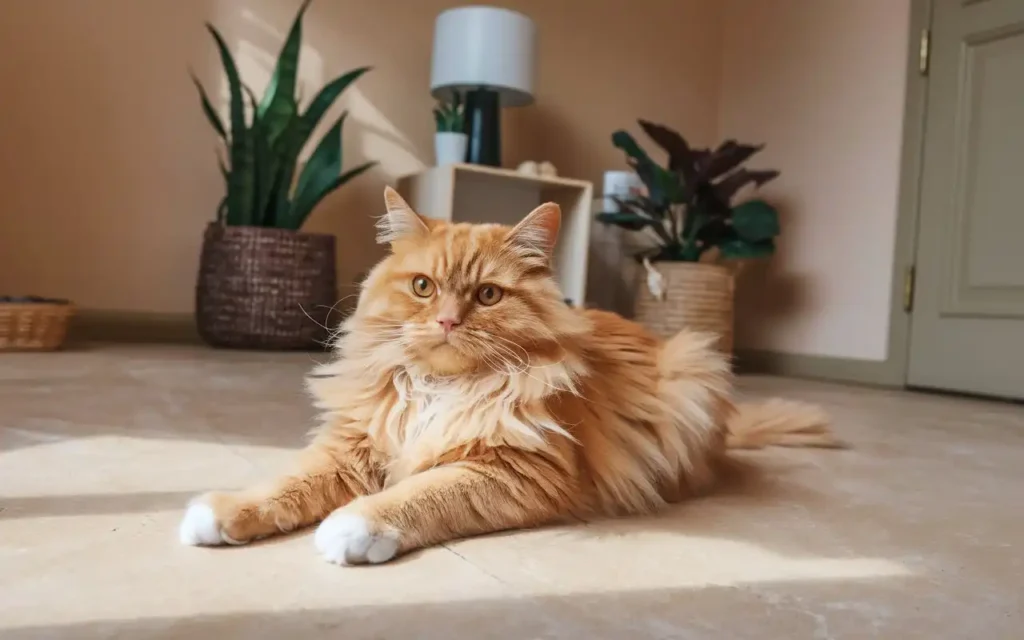
Common Misconceptions About Colitis in Cats
Misconceptions about colitis in cats can cause misunderstandings about its causes and management. A common myth is that colitis is always triggered by something the cat has eaten. Diet may contribute to colitis. But, it can also arise from infections, parasites, and stress. Also, some believe all colitis cases require a permanent diet change. However, this is not always necessary. Some cats may only need temporary adjustments during flare-ups. It’s vital to know these misconceptions. They affect care and the search for timely veterinary help.
Conclusion
Managing colitis in cats can be tough. But you can greatly improve your cat’s comfort and health with the right approach. We must know the symptoms, causes, and treatments for effective care.Early detection and intervention play a vital role in managing this condition. Check your cat for signs of distress. Make diet changes as your vet advises. Always consult your vet for treatment options. They know what is best for your cat. With proper care, your cat can lead a happier, healthier life.

